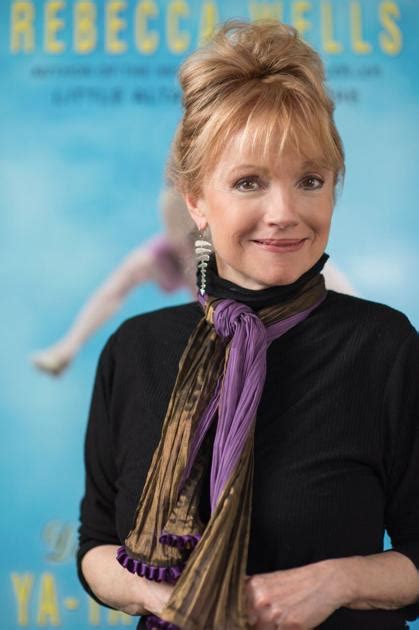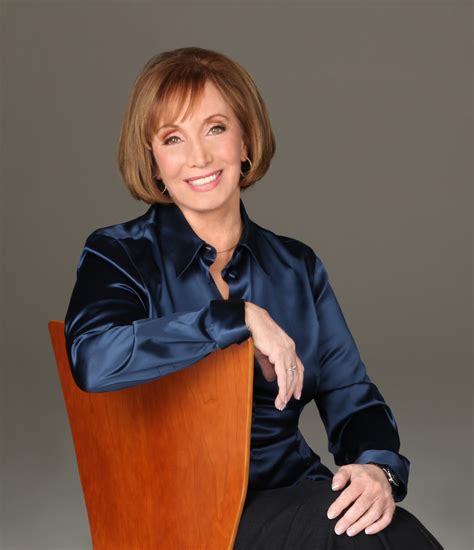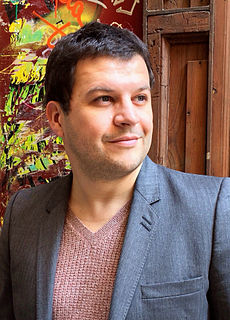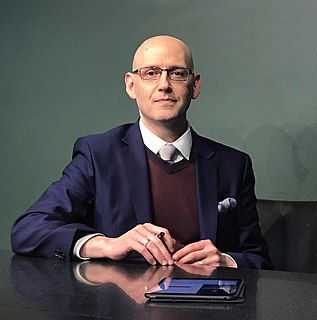A Quote by Margaret Mitchell
Child, it's a very bad thing for a woman to face the worst that can happen to her, because after she's faced the worst she can't ever really fear anything again. ...Scarlett, always save something to fear - even as you save something to love.
Related Quotes
She had said she didn't feel fear, but it was a lie; this was her fear: being left alone. Because of one thing she was certain, and it was that she could never love, not like that. Trust a stranger with her flesh? The closeness, the quiet. She couldn't imagine it. Breathing someone else's breath as they breathed yours, touching someone, opening for them? The vulnerability of it made her flush. It would mean submission, letting down her guard, and she wouldn't. Ever. Just the thought made her feel small and weak as a child.
Electra Heart is the antithesis of everything I stand for. And the point of introducing her and building a concept around her is that she stands for the corrupt side of American ideology, and basically that's the corruption of yourself. My worst fear - that's anyone's worst fear - is to lose myself and become an empty person. And that happens a lot when you're very ambitious.
He held her gaze steady while he summarized her promises. “She will honor me, protect me, obey me only when she believes I’m being reasonable—but I shouldn’t hold out hope that that day will ever come—try to love me before she’s an old woman, and I’d better get it straight in my mind that she will respect me until or unless I do something to prove I’m not worthy, and God save me then. Have I left anything out, Brenna?
Suddenly she felt strong and happy. She was not afraid of the darkness or the fog and she knew with a singing in her heart that she would never fear them again. No matter what mists might curl around her in the future, she knew her refuge. She started briskly up the street toward home and the blocks seemed very long. Far, far too long. She caught up her skirts to her knees and began to run lightly. But this time she was not running from fear. She was running because Rhett's arms were at the end of the street.
I think I fell in love with her, a little bit. Isn't that dumb? But it was like I knew her. Like she was my oldest, dearest friend. The kind of person you can tell anything to, no matter how bad, and they'll still love you, because they know you. I wanted to go with her. I wanted her to notice me. And then she stopped walking. Under the moon, she stopped. And looked at us. She looked at me. Maybe she was trying to tell me something; I don't know. She probably didn't even know I was there. But I'll always love her. All my life.
"She (Minnie Ruth Solomon) was unusual because even though I knew her family was as poor as ours, nothing she said or did seemed touched by that. Or by prejudice. Or by anything the world said or did. It was as if she had something inside her that somehow made all that not count. I fell in love with her some the first time we ever talked, and a little bit more every time after that until I thought I couldn't love her more than I did. And when I felt that way, I asked her to marry me . . . and she said she would."
She dumped me for the worst reason of all. For absolutely no reason at all...I mean, if she fell in love with someone else, or I did something wrong, or I let her down in some unforgivable way...That, I'd understand, right? But instead, she said...it wasn't anything. Not a single thing. It was just me. I was nice. I was kind. We just...she didn't see the connection anymore. I think she thought I was boring. And the cruelest part is, when someone says something mean about you, you know when they're right.
Nora leaves her husband, not-as the stupid critic would have it-because she is tired of her responsibilities or feels the need of woman's rights, but because she has come to know that for eight years she had lived with a stranger and borne him children. Can there be anything more humiliating, more degrading than a life-long proximity between two strangers? No need for the woman to know anything of the man, save his income. As to the knowledge of the woman-what is there to know except that she has a pleasing appearance?
She looked up at him and her face was pale and austere in the uplight and her eyes lost in their darkly shadowed hollows save only for the glint of them and he could see her throat move in the light and he saw in her face and in her figure something he'd not seen before and the name of that thing was sorrow.





































